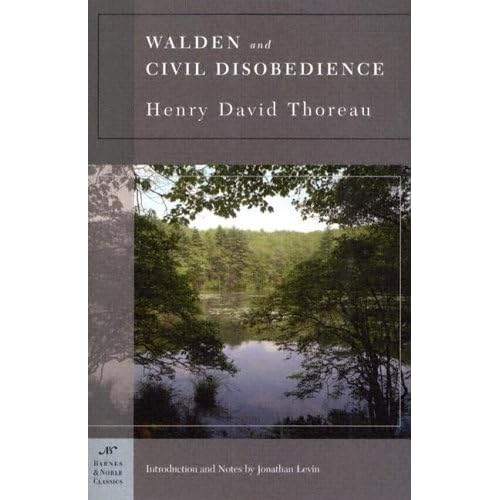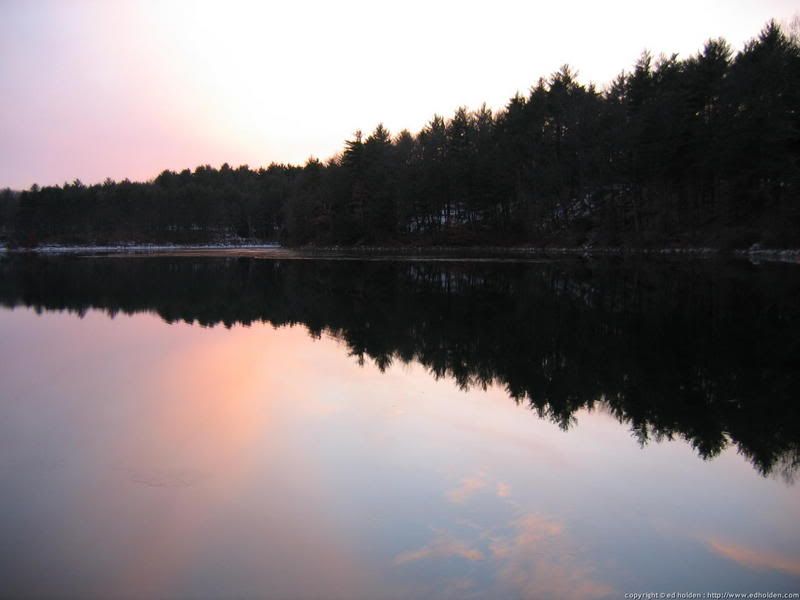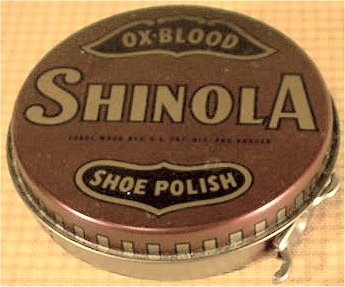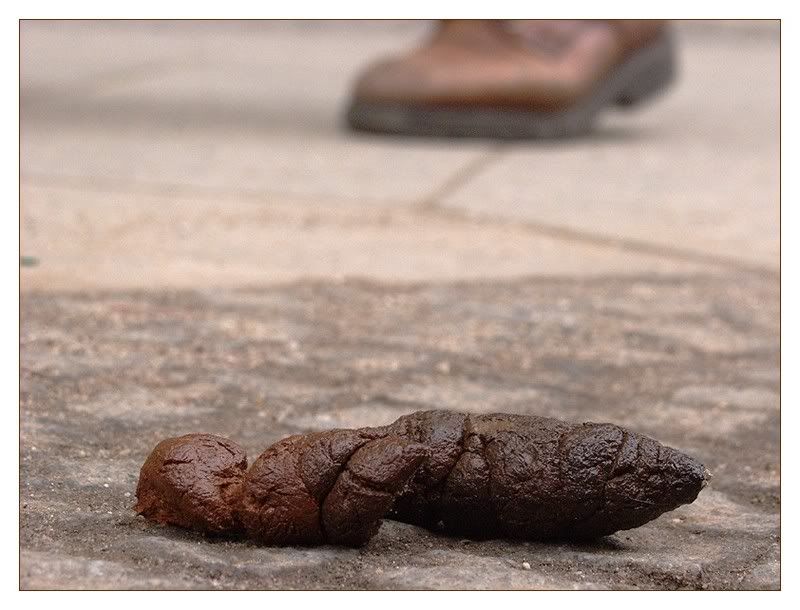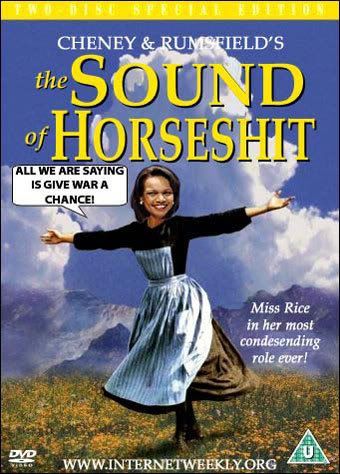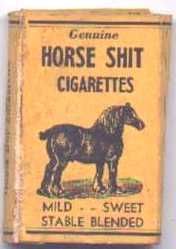Hey,
I am re-posting this here at the top to make it easier to find, should you want a preview of
Or Not. I posted this originally in July 2007, so it may not be word for word with the book. :)
Here is the beginning of my book, the first of several
journals by Cassie Sullivan: Colorado girl, vinyl record nut,
teenaged naturalist, uncompromising nonconformist. . .
Cassie's an analog girl in a digital world, and
the digital world is almost as pissed as she is.
Alone
From childhood's hour I have not been
As others were; I have not seen
As others saw; I could not bring
My passions from a common spring.
From the same source I have not taken
My sorrow; I could not awaken
My heart to joy at the same tone;
And all I loved, I loved alone. . . .
--Edgar Allen Poe
JOURNAL I
20 August 200~
In my attic room, the heat surrounds me even as my fan blows in the cool evening air. I'm holding a small hunk of granite, shot with milky quartz, and I place it next to a dried Amanita, deep cherry, and a northern goshawk feather, smooth and barred with gray. These are my tokens of the mountains, my antidotes against toxicity, my quiet space amid layers of noise.
And this is my new "Sketch Diary"--seventy plain sheets of acid-free paper bound with a wire. It is to be my canvas, my confidant, my Big-Chief tablet. It is my testimony, my not going out with a short rope and swinging from a tall pine tree. It is my not ending my beginning.
I've had the journal for ten days--a gift from a friend I miss too much to tell about--but I haven't written until now. I have only looked at the drawings of the two of us in the front, and re-read her admonition to write. And now, I have begun.
At dinner tonight, Mom and Dad wanted to know all about my first day of school. So I told them it was brutal--moronic kids, teachers offering, what? Rules and procedures? Couldn't I just go back to the cabin and live by myself?
"How about the walk, Cassie?" said Dad. "Did you have a nice walk to school and back home?"
My father is very smart, and he likes to ask penetrating questions.
"The walks were okay," I said.
I wanted to add "hot and smoggy and noisy," but I was getting tired of complaining. And since I suppose that's what journals are for, among other things--complaining--here's my portrait of day one, grade eight:
Everybody's early, thronging around under the big blue spruces and the Chinese elms on the over-watered but still splotchy grass. Many of the boys are suddenly as tall as I am, and all the eighth-graders are somehow swollen. Girls show off their summer swellings with their fresh, tight Abercrumby t-shirts and low-rise jeans. For two long years we have waited to rule the school, looking up to the tall, the bosomy, the rude. They were our inspiration, our role models--and now, we'll become them.
Classes are the first-day same as ever. In our seats well ahead of the almighty bell, everybody listens to the teachers, which is a shame because they all say exactly the same thing.
The one difference this year lies in our new responsibilities. First, we must conduct ourselves like good role models. Surely, we remember how we looked up to our older peers. So we must rise to this occasion. And we will, usually by setting the standard of rudeness and cruelty. The second responsibility is preparing for high school. High school will be different. High school will be hard. High school is practically the real world, and it will be a lot easier for us to "slip through the cracks."
Several kids perk up at this--they like the idea of unnoticed failure and wish it could begin right now. But they don't like the next part about having to earn credits by actually passing classes.
So, with this small difference, it's the same as it ever was. Kids fresh and clean and listening to their teachers' rules and suggestions for success. Kids optimistic about having a good year. Kids having high hopes about friends and grades and girlfriends and boyfriends and sports.
Don't they know that everything will be the same?
The smart kids will stay smart. The dummies will goof off. And the popular people will chirp in their little flocks, have their little pecking parties, and then run crying to the counselor.
The school year spreads before me like an endless pool of thick, green Jell-O, through which I am going to have to swim.
I should try to sleep.
*
Sleep and try don't work together, as I should know. I'm going to put on a record--headphones so I don't keep anyone up--and tell how I got into records.
One Saturday in May, just before the end of fourth grade, we stopped at a garage sale. My brother Sean had seen a bundle of fishing poles sticking up out of a barrel with baseball bats and hockey sticks, and he and Dad are always on the lookout for old fly rods.
This time they didn't see anything good, but just as we were about to leave, a few crates of records and a turntable caught my eye.
"Bet you've never heard an LP record, young lady," said the man.
"Oh, I allow as she has," said my dad, who has a few favorite records and a turntable on top of the CD player. "But she is a child of the digital age."
For some reason, I didn't like that "child of the digital age," and I didn't think it was true. I liked the look and feel of Dad's old records, and the sound of them too, so for fifty dollars--a good chunk of my life savings--I bought the record player, two big old speakers, and all the records.
21 August 200~
Homework finished: math and a language worksheet. I read ahead in the history book, American history this year, which is cool, though the teacher is a flag-waver with a whole "Proud to be an American" wall. I consider myself patriotic, but I doubt he would. And why should I be proud just because I happened to be born in the USA?
But I am a privileged American child with a super-cool room. I have the third floor attic and even my own bathroom. The walls have a steep slope and there are lots of cool angles. Two windows and a skylight give me light and air, but on summer days, the heat builds up 'til it's sweltering. A big fan in my north window makes it just bearable, and I can always go out onto my little iron-railed balcony outside the east window. There's just enough room to lie down and look at the stars, and the giant spruce trees at the end of our yard screen me from the alley and the old mansion across the way.
*
I must have dozed off there, because a moment ago I woke up all freaked out by Mom kissing my head. Why is it that when you get to a certain age your mother's kisses are like needles sticking in your spine?
"I just came up to wake you for dinner, sweetie. Fifteen minutes," she said.
Are you sure it wasn't to prick my flesh with stingy nettles?
"Okay, Mom, sorry. Can you leave me alone now?" Trying hard to be nice, I still sounded like a brat.
She creaked across the floor and down the stairs. Our house is one hundred and ten years old and sounds like it's auditioning for a role in a ghost story. I love it though--it's old and wooden and real, with high ceilings and old windowpanes that give the view a slight distortion. Mom says it's like her vintage cello, the wood supple, mellow, and resonant with age.
Even though our family seems small since Sean went off to college last year, we still have a family dinner unless Dad is in trial or Mom is in rehearsals with the symphony. I have to give my parents credit for not bugging me too much, but I don't like being the only child. Too much pressure.
Tonight I said school was fine--using the old monosyllabic teen routine. It killed me when Sean went through that--I was just a little kid when he started acting freaky. Dad called him Mr. Monosyllable and challenged Sean to actually pronounce it himself. According to Dad, it meant that Sean wanted to be alone and was as good as alone even when he was in the same room. Dad would say this right in front of him, which, of course, made him sulk off.
So I said my day was okay, school was fine, homework was easy and done. Was I tired? A little. Did I want to watch a DVD with them? Not really, I'd just go upstairs.
So here I am, listening to a scratchy Todd Rundgren record, using the cover--featuring a rainbow-haired Todd--as a surface to write on.
The summer I got the record player was the last time I was really close to my former friend and soccer teammate Jenny. I quit soccer after that season because I would rather be in the mountains than driving all over the state for tournaments. Jenny, on the other hand, joined a more competitive league.
Mom and I were close that summer, too, because she drove us to practice and games, and we didn't get up to the cabin with Sean and Dad very much.
Sometimes Jenny came to the mountains with us, but she tended to get bored. And at home, I tried to interest her in my new record collection, but she was obsessed with boy bands and had no interest in obscure classical LPs, jazz-fusion, and the endless synthesizer solos of the seventies. She thought the Seventies were cool, of course, but not real Seventies stuff--just the TV Seventies.
So maybe the end was already in sight, but we still had some good times: summer days at her country club pool, sleepovers, and early morning practices. I remember how we'd sit on my balcony under the stars until way past midnight, whispering, giggling, and discovering infinity. We could just cram the both of us out there, lying back on pillows under sleeping bags, each with the legs of the other along one side.
"Have you seen the stars in the mountains, Jenny, how bright they are? Just think how many we can't even see. And past them, more, and past them, more, and past them, more . . ."
"Where do you think they end?"
"They don't."
"But that's impossible . . ."
"That's the fun part," I said. "Trying to imagine infinity--what's beyond the beyond."
It seemed that we were the first kids to play with these thoughts, that we were onto something special and profound.
But then Jenny decided that it made her feel small to imagine the enormity of the infinite universe. She spoiled it by claiming that God knew the number of the stars, God had created them all, and beyond them was God, who was also within them and within us--Him and the Father and the Son and the Holy Spirit.
Jenny's mother had told her this, but what made it worse was that Jenny had asked. To me, these were our private thoughts, and I felt betrayed.
"Then God is infinity," I said, trying to preserve the mystery.
"I don't think so," she said. "I'll ask my mom."
22 August
Today was wonderful--the first and hopefully the last time I open my big mouth in a class "discussion." Dad says I "don't suffer fools gladly," but suffering them silently is a lot easier than trying to reason with them. Especially since I seem to have only two modes: mute and rant.
Here's what happened:
In my reading class, we were supposed to be talking about an article from Natural History magazine. Mr. Sinclair asked us to read the article, one page titled "What is a Species?" Then, he said, we would have a different kind of discussion. He would start us with a topic--the main idea--and let us take it from there. This sounded interesting for a change, but I had no idea how interesting it would get, especially since the topic was so dull. Come on--didn't he know that the seventh grade teachers had rammed main ideas down our throats and made us puke them out on about seven hundred standardized practice tests?
Anyway, the main idea was that scientists were having a hard time defining species, and the article outlined the various definitions and the problems with each. It wasn't easy, but I spent the summers in the mountains with my dad's collection of natural history books. Call me a freak--I like that stuff.
But I wasn't about to raise my hand.
"I don't believe in evolution," was the very first comment, courtesy of Stephanie Seabrook.
"Okay," said Mr. Sinclair. "Matthew."
"I think Darwin was wrong."
"Anyone want to respond to that?" He was looking puzzled, maybe because his question had been about the main idea. He matched a raised hand with a name on his seating chart.
"Kallie."
"I agree with Matthew."
"Because . . ."
"I just don't think it's possible for life to evolve. It's not like we see life evolving now."
"We're supposed to be discussing the main idea or ideas of the article," said Sinclair. "And one way to get there is to ask yourself what it's about. I'll stop talking now and turn it back to you. What is this article about?"
Half the kids in the room had been sticking their arms in the air, and now there wasn't one hand up.
"Well, I think this shows that maybe things go better when the teacher keeps out of it. You have a lot to say, then I tell you what I want you to talk about, and you all clam up. I still think we should start with what the article is about. We need someone to be brave and tell us."
He searched his chart again, to find me, shrugging off cowardice with a hand in the air.
"Cassandra."
"Cassie."
"Sorry, Cassie. What's the article about?"
"The definition of species, not evolution."
"Matthew."
"I disagree with Cassie because the article quotes Darwin."
"Christine."
"Darwin's dead and God isn't."
"Okay . . . Shelly."
"You go, girl!" Shelly said, and she and Christine did a high five.
Several others in the room flashed righteous smiles.
"Interesting," said Sinclair. "Rae?"
"I thought fossils prove that life evolved."
"Matthew."
"Then how come monkeys aren't evolving and becoming people today?" And then he started making chimp noises. "Ooo-ooh! Ooo-oo-oo-oooh."
A bunch of other people started making ape noises and scratching themselves. Monkey see, monkey do. They didn't realize it, but they were doing pretty good job of proving their primate status.
"Okay, wait a minute," said Sinclair. "Hush, everybody. Attention." He waited for quiet. "Let's let Rae respond."
"It takes millions of years."
"Christine?"
"I just don't believe that the earth is a million years old."
"What about the fossil record, carbon dating, basic geology?" I couldn't stand it anymore. "Wasn't that you I saw in science today?"
"Please raise your hand, Cassie. Jenny?"
"Actually, the earth is six thousand years old, Cassie. All the fossils came from the time of the great flood, and most of the animals from the Ark are still alive today."
"What about dinosaurs?" I said. "How the heck did Noah get those guys on his boat? I would have loved to see that--ol' T-rex chompin' down the breeding stock."
"What about Dragons, Cassie? They were sighted at least until the Middle Ages."
"Okay, hold on a minute, girls--"
"You're kidding right? Dragons? We're talking about dragons?"
"Cassie--"
"Holy mother of the living God, you guys are a bunch of--"
"Cassie! Class!" Sinclair tried to gain control, but I couldn't shut up.
"--freakin' morons. I cannot believe we are talking about dragons. And how do you figure six thousand years old? The Bible?"
"Cassie, you can take a time-out in the hall."
"Seriously--Dragons?"
"Out!"
"Okay, okay--I'm sorry--I'm going."
So I got to stand around in the hall like your average dummy. Beautiful.
Eventually, the bell rang. Rae was the first one out the door and she passed me by without looking at me. And do you suppose my other classmates were warm and jovial?
*
Done with my homework now, and I don't feel like writing. If I were up at the cabin, I would hike up to the rocks to watch the sunset. But the thought occurs, what's to stop me from walking now?
*
What's to stop me?
Parents. It's their job.
But mine is to argue, so it worked out okay.
"I'm going for a walk, Mom," I said, walking past her door. "Be back soon."
"No, sweetie, it's getting dark."
"It's twilight, I'll be back before dark."
"No way," said Dad, from the bottom of the stairs.
"Da-ad." I hated the sound of my whiney voice.
"No-o." His mocking really helped.
"I'll come with you," said Mom
Please, no.
"Unless you want to be alone," she added.
"Of course she wants to be alone," said Dad. "But she should be alone indoors."
"Oh, that's healthy advice," I said.
"It's safe."
"Maybe we should let her go for a short one, Gale." Unexpected help from the maternal quarter.
"Deb . . . Cassie . . ."
The problem is that Dad, as if being a dad wasn't enough to make him worry, is a public defender. I guess it would be the same for any criminal lawyer, but with the high PD caseload and twenty years in the system, he's defended more than a few people accused of doing very ugly things. So, he has a hard time letting me out in the big, bad world. Too many crime-scene photos.
I knew this was what he was thinking about, and I started getting nervous and scared myself. But I still wanted to go--even more, maybe.
"Just a short one, Gale. It isn't dark yet, and we don't want her feeling like a prisoner."
"Take my cell phone," Dad said to me. "Be aware of your surroundings. Don't talk--"
"--to anyone or look at anyone you don't know," I cut him off and finished his sentence.
"Why does your mocking not reassure me?"
I ran down the stairs, took the phone, and reached up to kiss his cheek.
He put both arms around me, hugging me hard. "Be back in twenty minutes."
"Will do," I said, and I made for the door.
Unlike every other kid in the American universe, I have never bugged my parents to buy me a cell phone. So I didn't instantly fire off a three-way call to my two best friends to gossip about the next best two. (Who would these friends be, anyway?) When it comes to consumer electronics, I'm not interested. I prefer real life to mLife or any other campaign for "digital enhancement of emotional life significance." That's actually what they called it--I Googled it once, mLife, though I'm not sure I understood it any better than I had before.
Do people really think they're more alive if they are digitally connected to everything? And what are you really connected to if you're virtually connected to everything?
Cassie Sullivan, asking those tough questions--so you don't have to.
By the time I got out the door, I forgot why I wanted to be out so bad. Was I upset about the incident at school, or was I just ready to jump out of my own skin because I couldn't stand being in here anymore?
Asking those tough questions.
Less than ten minutes away, in Valley Park, there's a good hill for catching the sunset, so I made for that. It looks out on a greenway along the creek, which has been converted from a wandering stream along the seam of the mountains and the prairie into a riprap and concrete-walled ditch that drains our acres and acres of pavement. Red gravel jogging and bike trails thread along the creek and split off along the edges of ball-fields, woods, and playgrounds. Past the creek is the huge and terrible Interstate highway, a constant source of noise, pollution, and other violence. And past that are more of the semi-real neighborhoods, where people live their semi-real existences, and then the mountains rise--mine-ridden, road-scarred, over-recreated, but still grand--to a horizon where the peach sky glows with sunlit smog. Beautiful.
Up there on the other side of the Peak is our family's own little piece of ground with our cabin and my tipi. This summer--last summer, I guess--Sean and I would have been up on the rocks, bathing in the last rays as the sun sinks into the glacier-white of the Collegiate Peaks.
We sit for a while.
The sun sets.
We talk a little, then walk slowly back, leaving our flashlights off, as it grows darker and darker, cooler and cooler, and bats skim the beaver pond to make ripples that shimmer reflections of the suspended stars.
23 August
Another wonderful day at school, Diary. I was getting stuff together for class when Matthew, whose locker is next to mine, started acting all nice.
"Good job expressing your opinions yesterday," he said. "I don't agree, but it sure made the discussion interesting."
I laughed, relieved. "Well, it certainly was that."
"But there's one little thing I wanted to make you aware of," he said with a grin.
"Yeah?"
"You're going to hell!" And he slammed his locker.
He high-fived Nathan McMahon, who had apparently been watching, (morons always high-five--it's tribal code) and they took off down the hall.
In reading class, Sinclair gave us something a little safer, a story from the lit book, and we had another discussion. Or they did.
People were trashing the story, one by Hemingway about a little boy who thinks he is going to die when he gets the flu. He hears the doctor say his temperature is 103º, and he remembers some kid saying that you die if you go over 44º. Trouble is, he's been living in Europe, where they use Celsius.
Some of them didn't get it, and Sinclair let the others explain. Then they thought there wasn't enough detail. They didn't like the dad going out quail hunting. They thought the ending was random. They thought it was boring.
Though he didn't say so, Sinclair looked disappointed that they weren't into it.
"What did you think of the ending, Cassie?" He tried to get me involved, but I wouldn't play.
"I agree with everyone," I said.
24 August
Saturday today. I was hoping that we could go to the cabin this weekend, but no. Stayed up last night listening to the Mamas and the Papas but didn't feel like writing. Slept until noon. Infernally hot up here. Stupid today. Math homework took forever. It's easy, but I'm just stupid.
*
I feel a little better now that that it's late, cooler, and everyone is in bed. I have a record on low--some freaky Pink Floyd, which also seems to help.
Earlier, I was getting the same feeling of stupidity that I've felt before. It started in sixth grade and became even worse in seventh. When Mom noticed that I "wasn't myself," she took me to the doctor--who couldn't find anything wrong with me--then hit the bookstore and loaded me up on vitamins. Maybe the vitamins helped, or the walks she forced me to take, or maybe the increasing light of spring brought me some relief. One of the books Mom got said that Seasonal Affective Disorder (they call it SAD--real funny) and PMS combine in some women for a double whammy. But a vegan diet was supposed to be good for it, so I got some points there.
Summer's always better because that's when I get to be in the mountains, wandering along the creek, hanging in my tipi, reading on a flat rock in the sun. After my first really rough winter in sixth grade, I read a bunch of Native American stuff like Black Elk Speaks and Crazy Horse: The Strange Man of the Ogallala. I loved the reading, but there weren't any happy endings.
Dad told me not to "romanticize the American Indian." I said at least they had some respect for the land. He said I was lucky I wasn't born a couple of hundred years ago into the Lakota nation because instead of lollygagging around reading and daydreaming I would be working. As a female, he said, my job would be "processor of bison," so I'd be spending every waking hour in hard labor. That is, if I was lucky, and the men had been successful on their hunts. I said, anyway, it wasn't fair the way we took their land and tried to kill them all, and he had to agree with that.
"But," he said, "you have to understand. Two cultures collide. They have two completely different ways of dealing with the world--and one was stronger in numbers and technology. The result was inevitable."
"Genocide is inevitable?"
"I didn't say that genocide is inevitable--I said in this instance, in these circumstances, at this point in history, the end result of the American Indian losing this continent was inevitable. And as the Talking Heads said, 'Same as it ever was.'"
"Sean," I said, "please instruct Mr. Sullivan to answer the question."
"Mr. Sullivan, you will answer Ms. Sullivan's question."
"Yes. Not here and now, but somewhere right now, genocide is happening and it is inevitable. There is nothing you or I can do about it."
Then he tried to backpedal, saying that just because it had been that way didn't mean it had to be that way--by doing what's right and protesting what's wrong, things can change. So, although he tried to take back the part about there being "nothing you or I can do about it," the message I got was that melancholia is not entirely a matter of hormones and sunlight. Things happen--things that cause it. It's not just me--it's the world that is wrong.
So I tell myself in the midnight dreary, as I ponder--yes, weak and weary--over many a quaint volume of my own forgotten lore. And wait for the raven's rapping at my door.
25 August
Slept in again today. And I'm dumb again.
Raven rapping? I'm pretty funny. Or pretty stupid.
*
It's hot. I'm on my balcony. If I wanted to do anything it would be to walk, but it's almost dark and I'm a prisoner. I had to FORCE myself to eat and try to act normal tonight. The monosyllabic routine works best if I'm faking it, but now I don't have the energy.
*
I imagine the drifting away at the end of "To Build a Fire," and I wish I could just fade away like that:
"How'd you sleep last night, pal?"
"Wonderful. Felt like I slept forever. Slept myself right back to camp, right back to you boys. Too bad about that dog, but I'd like to have a word or two with that old timer at Sulphur Creek."
"Looked like you was sleeping the sleep of the righteous--or the sleep of the damned--one."
"Heh, heh, heh! You always was a real good pal, Buddy. Now I'm just dozin' off again. Just dozin' off . . ."
27 August
It's been taking all the energy I have just to, I don't know what, exist?
28 August
Why will you say that I am mad? The disease had sharpened my senses--not destroyed--not dulled them. Above all was the sense of hearing acute. I heard all things in the heaven and in the earth. I heard many things in hell. How, then, am I mad?
--Edgar Allen Poe, "The Tell-Tale Heart"
*
Do I tell you everything, Di? Do I reserve no secrets? Are we thick as thieves? Will you betray me, like a true friend? Is this life or mLife? Can I text you?
*
Maybe I'm not as stupid today. I feel angry and sarcastic--I guess that's a good sign.
And I want to play records--that's good, too. I love my records. I love to clean them with my Discwasher, move the needle-arm over to the right spot, close the dust cover, and lower the needle with the little lever on the side. At first I got tired of getting up to turn the record over every 20 minutes, and the pops and scratches grated on my nerves. But I got to like even those parts, if the scratches aren't too bad, because they make it more real than computerized music.
*
Reading over the last couple of pages, it looks like I was getting maybe a tiny bit depressed. It's still summer so it can't be the double whammy. But my winter mood started early last year, too.
That's when Sean took off for college in the great Northwest and, though we tried to be excited for him, we were all SAD then. There was a big empty space in the house. Mom and Dad turned to me, trying to be subtle about it, but I felt them watching me. It was supposed to be a good thing--having the house and my parents to myself--but the pressure made me want to be alone more, even while it was harder to do so. If I kept getting good grades, at least they couldn't bug me about that. So I forced myself to do what needed to be done, though I didn't care about any of it.
I hid in my tower on the third floor, reading and listening to my records and looking out on the world. I read One Flew Over the Cuckoo's Nest in the fall, and I felt a little crazy, thinking of my room at the top of the house as my cuckoo's nest. In my institution--school--I wanted to be like Chief, tall but invisible, and I experimented with pretending not to be able to speak. Sliding through the halls, I imagined Chief Broom's fog. His voice ran through my mind, murmuring about machinery and the sinister something he calls "the combine." And strangely, he made sense.
*
If, as I compose this missive to wherever, I've been able to conceal how messed up I am, I guess I should drop the pretense now. Reading that last section, it seems clear that I've got more than a few bats in my belfry.
Not that I've tried to pretend that I go along with the herd, but I do act like I'm cool in my own world. And usually, I am--when I don't feel like jumping off a cliff--but I have strange ideas, weird thoughts.
For instance: hearing the machinery in digital media.
Now, to make that sound less weird, let me explain. A record or a tape is a recording of the music. And because analog carries a full-spectrum of the sound, all the music is there.
Digital, on the other hand, isn't really a recording, it's a sample. So a CD has sampled bits of each frequency, not the whole sound. Imagine a piano that has ten little keys for each note instead of one single key. That is to say, each of these ten keys combines to make the sound of one note. Now deaden every third micro-note. You only have two-thirds of the sound. My fractions may be off, but that's digital.
Why do CDs sound so good then?
The samples are high quality, there's no background noise, and the human ear isn't sensitive enough, we're told, to hear the spaces between the samples. But vinyl nuts, like me, can hear the difference: records have a warm tone that digital can't match.
That makes sense, doesn't it? But if I make a leap and say that I when I listen to digital music, I hear machinery, then it sounds utterly mad. "Why will you say that I am mad?"
I don't actually mean that digital media is a part of the combine, that it implants some sort of machinery, even virtual machinery--
Ahhh, it's too late for this, and I can't think.
Let me get away from Chief Broom and the ticking of "The Tell-tale Heart" and simplify:
1. Digital Music sounds robotic to me. It's too clear, too clean--it's virtual music, not actual music.
2. People are used to it. They like it. They think music is supposed to sound that way.
3. Since environment has an effect on organisms, digital music could change the way the brain works.
Now, number three may sound like Chief Broom, but maybe, just maybe, listening to digital sampling trains the brain to hear in a certain way. And not hear in another.
Is there anything wrong with this? I don't know--but CDs began to sound sinister to me, so I stopped listening to them.
Now if I were mad, I would think there were mental viruses hidden between the bits in digital samples. There could even be microchips in our brains that are triggered by digital media to produce thoughts like: "Drink Sexy Cola and be Powerful!" "You must buy things to truly exist!" "The virtual and the actual are ONE!" "Security is Freedom is Marketing is Art is Power is America is Right is Peace is Security is Strength is Truth is Might is Liberty is Lifestyle is Property is Happiness is Automobile is Independence is Globalism is Diversity is Oneness is Jesus is the Almighty Clean of Dr. Bronner's Peppermint Castile Soap--Dilute! Dilute! Dilute! Dilute! Dilute!"
But I'm not mad. So I don't think that.

 to reluctant ones
to reluctant ones , and they like everything from Orson Scott Card to Ellen Hopkins to Kerouac.
, and they like everything from Orson Scott Card to Ellen Hopkins to Kerouac. 

 so I'm thinking that the usual high school setting as it appears in the young adult novel won't appeal very much.
so I'm thinking that the usual high school setting as it appears in the young adult novel won't appeal very much. 




 but I am relaxing a little, now.
but I am relaxing a little, now. More on that later.
More on that later.

 But, you know me--I
But, you know me--I 












